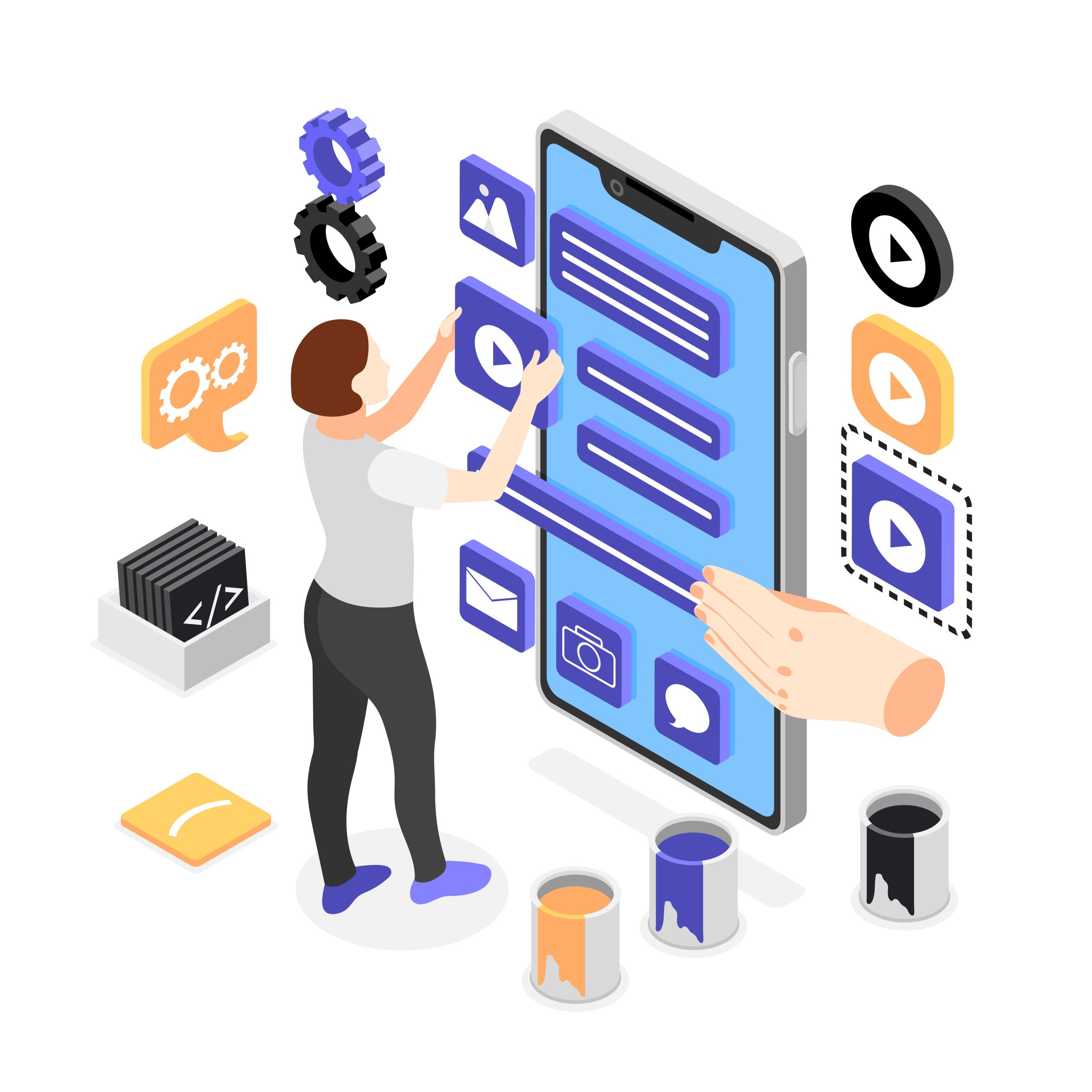Introduction:
In today’s digital age, mobile applications have become an integral part of our daily lives. From social media and entertainment to productivity tools and e-commerce, mobile apps have revolutionized the way we interact with technology. With countless opportunities in the mobile app market, businesses and entrepreneurs are eager to tap into this lucrative industry.
App development is a multi-step process that requires careful planning and execution. The first step is to identify and define the purpose of your app. Understanding the needs and preferences of your target audience will help you create an app that solves their problems or provides them with valuable services.
Once you have a clear vision in mind, it’s time to dive into the mobile app market research. Analyze your competitors’ apps, identify gaps in the market, and determine how you can differentiate your app from others. This research will help you create a unique selling proposition for your mobile application.
Next comes the actual development process. Mobile app development involves coding and programming to bring your idea to life. It is important to choose the right platform (iOS or Android) based on your target audience and market share.

While coding and development are essential aspects, don’t overlook user experience (UX) design. A well-designed app with intuitive navigation and visually appealing interfaces will enhance user engagement and satisfaction.
After developing your mobile application, thorough testing is crucial before launching it in the market. Test for compatibility across different devices, screen sizes, and operating systems to ensure smooth functionality.
It’s also important to plan for future updates and improvements based on user feedback. Regularly monitoring user reviews and incorporating necessary changes will help you stay ahead in this ever-evolving industry.
If you’re looking to build a successful mobile application that stands out from the crowd, you’ve come to the right place. In this comprehensive guide, we will walk you through the essential steps of app development, covering everything from ideation to coding and beyond. Whether you’re a seasoned developer or a novice in the world of app development, this guide is designed to equip you with the knowledge and insights needed for success.
1) Understanding the Importance of Mobile Apps
– Exploring the growing significance of mobile apps in today’s digital landscape.
– Analyzing statistics and trends that highlight the potential of mobile app development.
– Uncovering how apps can enhance user experience and drive business growth.
2) Ideation and Market Research
– Nurturing innovative ideas for your mobile application.
– Conducting thorough market research to identify target audience and competitors.
– Evaluating market demand for your app idea through surveys and focus groups.
3) Planning Your Mobile App Development Journey
– Defining clear objectives, goals, and features for your application.
– Creating a detailed project plan that outlines timelines, resources, and budget considerations.
– Choosing between native or hybrid app development approaches based on your specific requirements.
4) User Interface (UI) Design Principles
– Understanding the importance of intuitive UI design in creating engaging user experiences.
– Implementing best practices for designing visually appealing interfaces that align with your brand identity.
– Optimizing UI elements for different screen sizes across various devices.
5) Coding and Development
– Selecting the appropriate programming language and framework for your mobile app.
– Breaking down the development process into manageable stages, including wireframing, prototyping, and testing.
– Incorporating essential functionalities such as user authentication, data storage, and third-party integrations.
6) App Testing and Quality Assurance
– Implementing rigorous testing methodologies to ensure your app functions flawlessly across different devices and operating systems.
– Conducting beta testing to gather feedback from real users and make necessary improvements.
– Optimizing performance, security, and usability through thorough quality assurance procedures.
7) App Launch Strategies
– Developing a comprehensive marketing plan to create buzz around your mobile application.
– Leveraging various channels such as social media, app stores, influencers, and press releases to maximize reach.
– Analyzing post-launch metrics to measure the success of your app launch strategies.
Conclusion:
Building a successful mobile application requires careful planning, technical expertise, and a deep understanding of user preferences. By following this ultimate guide on how to build a successful mobile application, you will be equipped with the knowledge and tools needed to turn your app idea into a reality. Embrace innovation, stay focused on user experience, and continuously adapt to market dynamics for long-term success in the dynamic world of mobile app development.
Check Out Our Previous Blogs – https://webhubsolution.com/digital-marketing-6-effective-strategies/
Find Out More – https://en.wikipedia.org/wiki/Mobile_app_development


Error: Contact form not found.